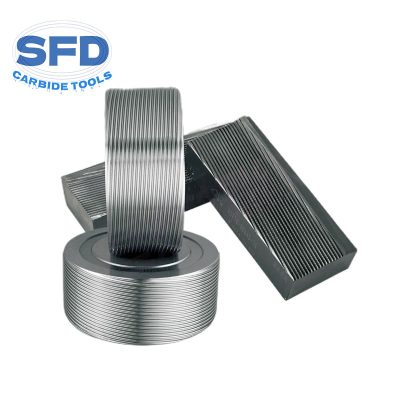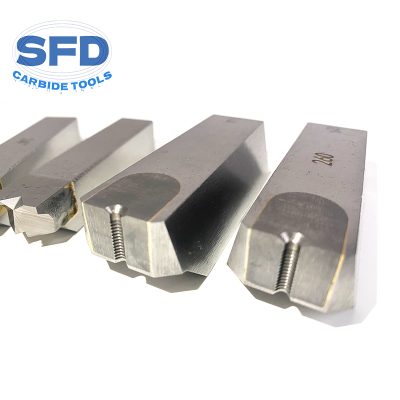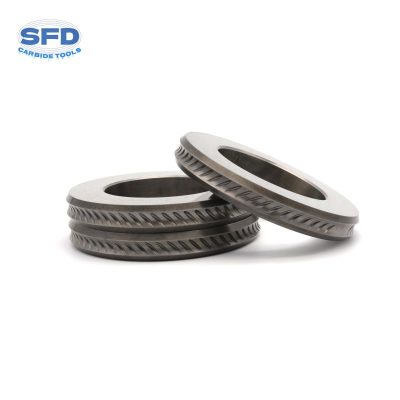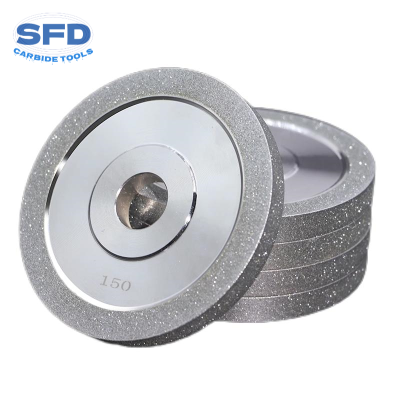Thread Rolling Die is a tool that uses metal plastic deformation to roll threads on a rolling machine, suitable for mass production of external threads on standard fasteners and other threaded connections.

SFD-produced steel bar rolling dies are quenched at high temperatures in a vacuum furnace, resulting in high-strength anti-extrusion performance, high hardness, wear resistance, and durability.
The raw material is high-quality Cr12MoV alloy steel, with precise internal and external designs suitable for various steel bar gear processing, ensuring precise threads.
By adopting a new zero-insulation quenching process, issues such as coarse overheated grains, blade breakage, and easy oxidation and decarburization are completely resolved. Compared to conventional quenching, this method offers a longer service life and better economic benefits, while being energy-saving and environmentally friendly.
Our products boast exquisite quality, precise threading, laser marking, support for customized heat treatment, and a vacuum furnace high-temperature quenching process to enhance the hardness and strength of the rolling wheel. They exhibit strong wear resistance, high hardness, smooth surfaces, and are not easily deformed.

The outer diameter of the rolled thread is generally not more than 25 millimeters, the length not more than 100 millimeters, and the thread accuracy can reach level 2 (GB197-63). The diameter of the blank used is roughly equal to the pitch diameter of the processed thread.
Rolling generally cannot process internal threads, but for workpieces with softer materials, slotless extrusion taps can be used to cold extrude internal threads (up to a maximum diameter of about 30 millimeters), functioning similarly to tapping. The required torque for cold extrusion of internal threads is about twice that of tapping, with machining accuracy and surface quality slightly higher than tapping.





